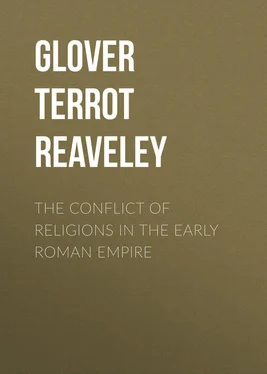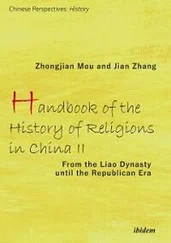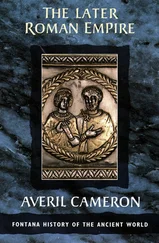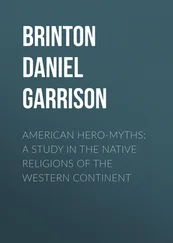Terrot Glover - The Conflict of Religions in the Early Roman Empire
Здесь есть возможность читать онлайн «Terrot Glover - The Conflict of Religions in the Early Roman Empire» — ознакомительный отрывок электронной книги совершенно бесплатно, а после прочтения отрывка купить полную версию. В некоторых случаях можно слушать аудио, скачать через торрент в формате fb2 и присутствует краткое содержание. Жанр: foreign_religion, foreign_antique, foreign_prose, на английском языке. Описание произведения, (предисловие) а так же отзывы посетителей доступны на портале библиотеки ЛибКат.
- Название:The Conflict of Religions in the Early Roman Empire
- Автор:
- Жанр:
- Год:неизвестен
- ISBN:нет данных
- Рейтинг книги:4 / 5. Голосов: 1
-
Избранное:Добавить в избранное
- Отзывы:
-
Ваша оценка:
- 80
- 1
- 2
- 3
- 4
- 5
The Conflict of Religions in the Early Roman Empire: краткое содержание, описание и аннотация
Предлагаем к чтению аннотацию, описание, краткое содержание или предисловие (зависит от того, что написал сам автор книги «The Conflict of Religions in the Early Roman Empire»). Если вы не нашли необходимую информацию о книге — напишите в комментариях, мы постараемся отыскать её.
The Conflict of Religions in the Early Roman Empire — читать онлайн ознакомительный отрывок
Ниже представлен текст книги, разбитый по страницам. Система сохранения места последней прочитанной страницы, позволяет с удобством читать онлайн бесплатно книгу «The Conflict of Religions in the Early Roman Empire», без необходимости каждый раз заново искать на чём Вы остановились. Поставьте закладку, и сможете в любой момент перейти на страницу, на которой закончили чтение.
Интервал:
Закладка:
The idea that Rome's Empire was the outcome of her piety was not first struck out by Horace. Cicero uses it in one of his public speeches with effect and puts it into the mouth of his Stoic in the work on the Nature of the Gods.[ 13 13 De Haruspicum Responsis , 9, 19; N.D. ii, 3, 8.
] Later on, one after another of the Latin Apologists for Christianity, from Tertullian[ 14 14 E.g. Apol. 25, with a serious criticism of the contrast between Roman character before and after the conquest of the world, – before and after the invasion of Rome by the images and idols of Etruscans and Greeks.
] to Prudentius, has to combat the same idea. It was evidently popular, and the appeal to the ruined shrine and the neglected image touched – or was supposed to touch – the popular imagination.
Mankind are apt to look twice at the piety of a ruler, and the old question of Satan comes easily, "Doth Job serve God for naught?" Why does an Emperor wish to be called "the eldest son of the church?" We may be fairly sure in the case of Augustus that, if popular sentiment had been strongly against the restoration of religion, he would have said less about it. We have to go behind the Emperor and Horace to discover how the matter really stood between religion and the Roman people.
We may first of all remark that, just as the French Revolution was in some sense the parent of the Romantic movement, the disintegration of the old Roman life was accompanied by the rise of antiquarianism. Cicero's was the last generation that learnt the Twelve Tables by heart at school ut carmen necessarium ; and Varro, Cicero's contemporary, was the first and perhaps the greatest of all Roman antiquaries. So at least St Augustine held. Sixteen of his forty-one books of Antiquities Varro gave to the gods, for "he says he was afraid they would perish, not by any hostile invasion, but by the neglect of the Roman citizens, and from this he says they were rescued by himself, as from a fallen house, and safely stored and preserved in the memory of good men by books like his; and that his care for this was of more service than that which Metellus is said to have shown in rescuing the sacred emblems of Vesta from the fire or Æneas in saving the penates from the Fall of Troy."[ 15 15 Augustine C.D. vi, 2.
] He rescued a good deal more than a later and more pious age was grateful for; Augustine found him invaluable, but Servius, the great commentator on Virgil, called him "everywhere the foe of religion."[ 16 16 On Æneid , xi, 785.
] The poets, too, felt to the full the charm of antiquity. Propertius[ 17 17 Propertius, v, 1, 69.
] and Ovid both undertook to write of olden days – of sacred things ("rooted out of ancient annals"[ 18 18 Ovid, Fasti , i, 7.
]), and of the names of long ago. Virgil himself was looked upon as a great antiquary. Livy wrote of Rome's early history and told how Numa "put the fear of the gods" upon his people "as the most effective thing for an ignorant and rough multitude";[ 19 19 Livy, i, 19.
] his history abounds in portents and omens, but he is not altogether a believer. As early as a generation before Rome was burnt by the Gauls it was remarked, he says, that foreign religion had invaded the city, brought by prophets who made money out of the superstitions they roused and the alien and unusual means they employed to procure the peace of the gods.[ 20 20 Livy, iv, 30.
]
Primitive Roman ritual
Nowhere perhaps is antiquarianism more fascinating than in the sphere of religion. The Lupercalia had once a real meaning. The sacrifice of goats and young dogs, and of sacred cakes that the Vestals made of the first ears of the last year's harvest; the Luperci , with blood on their brows, naked but for the skins of the slaughtered goats; the februa of goatskin, the touch of which would take sterility from a woman – all this is intelligible to the student of primitive religion; but when Mark Antony, Consul though he was, was one of the runners at the Lupercalia, it was not in the spirit of the ancient Latin. It was an antiquarian revival of an old festival of the countryside, which had perhaps never died out. At all events it was celebrated as late as the fifth century A.D., and it was only then abolished by the substitution of a Christian feast by Pope Gelasius.[ 21 21 Plutarch, Romulus , 21; Cæsar , 61, Warde Fowler, Roman Festivals , p. 310 f.
] Augustus took pains to revive such ceremonies. Suetonius mentions the "augury of safety," the "flaminate of Juppiter," the "Lupercal rite," and various sacred games.[ 22 22 Suetonius, Aug. 31, Warde Fowler, op. cit. p. 190.
] Varro in one of his books, speaks of the Arval Brothers; and Archæology and the spade have recovered for us the acta of ninety-six of the annual meetings which this curious old college held at the end of May in the grove of Dea Dia. It is significant that the oldest of these acta refer to the meeting in 14 A.D., the year of Augustus' death. The hymn which they sang runs as follows: —
Enos Lases iuvate Neve lue rue Marmar sins incurrere in pleores Satur fu fere Mars limen sali sta berber Semunis Alternis advocapit conctos Enos Marmor iuvato Triumpe.
The first five lines were repeated thrice, and Triumpe five times.[ 23 23 Mommsen, History , i, p. 231, who translates the hymn.
] Quintilian tells us that "the hymns of the Salii were hardly intelligible to the priests themselves,"[ 24 24 Quintilian, i, 6, 40. See specimen in Varro, L.L. vii, 26.
] yet they found admirers who amused Horace with their zeal for mere age and obscurity.[ 25 25 Epp. ii, 1, 20-27, 86.
]
But an antiquarian interest in ritual is not inconsistent with indifference to religion. Varro, as we have seen, was criticized as an actual enemy of religion in spite of the services he claimed to have rendered to the gods – and the very claim justifies the criticism. So far as the literature of the last century B.C. and the stories current about the leading men in Rome allow us to judge, it is hard to suppose there has ever been an age less interested in religion. Cicero, for example, wrote – or, perhaps, compiled – three books "On the Nature of the Gods." He casts his matter into the form of a dialogue, in which in turn an Epicurean and a Stoic give their grounds for rejecting and for accepting the gods, and an Academic points out the inadequacy of the reasoning in both cases. He has also written on the immortality of the soul. But Cicero's correspondence is a more reliable index to his own beliefs and those of the society in which he moved. No society could be more indifferent to what we call the religious life. In theory and practice, in character and instinct, they were thoroughly secular. One sentence will exhibit Cicero's own feeling. He wrote to his wife from Brundusium on 30th April 58 B.C., when he was on his way to foreign exile: "If these miseries are to be permanent, I only wish, my dearest ( mea vita ), to see you as soon as possible and to die in your arms, since neither gods, whom you have worshipped with such pure devotion, nor men, whom I have always served, have made us any return."[ 26 26 Cicero, ad fam. xiv, 4, 1.
] Even when his daughter Tullia died, no sign of any hope of re-union escaped him in his letters, nor did Servius Sulpicius, who wrote him a beautiful letter of consolation, do more than merely hint at such a thing. "If the dead have consciousness, would she wish you to be so overcome of sorrow?" Horace, whose odes, as we have seen, are now and then consecrated to the restoration of religion, was every whit as secular-minded. He laughed at superstition and ridiculed the idea of a divine interest in men, when he expressed his own feeling. No one was ever more thoroughly Epicurean in the truest sense of the word; no one ever urged more pleasantly the Epicurean theory Carpe diem ; no one ever had more deeply ingrained in him the belief Mors ultima linea rerum est . His candour, his humour, his friendliness, combine to give him a very human charm, but in all that is associated with the religious side of man's thought and experience, he is sterile and insufficient. And Horace, like Cicero, represents a group. Fuscus Aristius, it is true, declined to rescue the poet from the bore on the ground that "it was the thirtieth Sabbath – and Horace could not wish to offend the Jews?" but we realize that this scruple was dramatic. Fuscus is said to have been a writer of comedies.[ 27 27 Hor. Sat. i, 9, 69: Porphyrion is the authority for the comedies.
]
Интервал:
Закладка:
Похожие книги на «The Conflict of Religions in the Early Roman Empire»
Представляем Вашему вниманию похожие книги на «The Conflict of Religions in the Early Roman Empire» списком для выбора. Мы отобрали схожую по названию и смыслу литературу в надежде предоставить читателям больше вариантов отыскать новые, интересные, ещё непрочитанные произведения.
Обсуждение, отзывы о книге «The Conflict of Religions in the Early Roman Empire» и просто собственные мнения читателей. Оставьте ваши комментарии, напишите, что Вы думаете о произведении, его смысле или главных героях. Укажите что конкретно понравилось, а что нет, и почему Вы так считаете.












